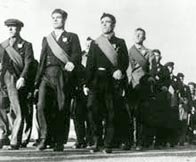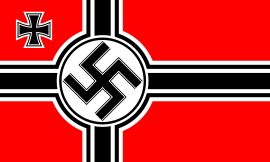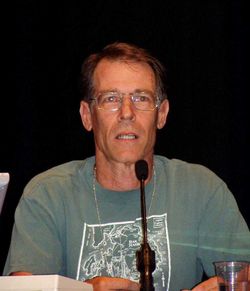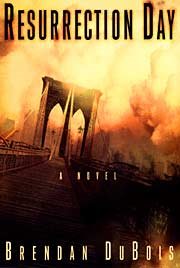 Grand Mufti | In 1941, the Grand Mufti of Jerusalem Mohammad Amin al-Husayni was assassinated by members of the Jewish underground Irgun including its former leader David Raziel. In May 1940, the British Foreign Office had declined a proposal from the chairman of the Vaad Leumi (Jewish National Council in Palestine) that they assassinate al-Husayni, but in November of that year Winston Churchill approved such a plan, to "capture or kill" the Mufti. |
| Both the British and the Vaad Leumi considered al-Husayni to be a Palestinian Arab nationalist as well as a Muslim religious leader. Known for his anti-Semitism and his opposition to Zionism, al-Husayni fought against the establishment of a Jewish Homeland in the territory of the British Mandate of Palestine. During the war, the Mufti repeatedly made requests to "the German government to bomb Tel Aviv. To this end, Husayni collaborated with Nazi Germany during World War II and helped recruit Muslims for the Waffen-SS. al-Husayni's had planned to arrived in Europe to met the German Foreign Minister, Joachim von Ribbentrop on November 20, 1941 to be officially received by Adolf Hitler on November 30, 1941 in Berlin. The Mufti was planning to ask Hitler for a public declaration that "recognized and sympathized with the Arab struggles for independence and liberation, and that it would support the elimination of a national Jewish homeland". Earlier, al-Hussayni submitted to the German government a draft of such a declaration, containing a clause: Germany and Italy recognize the right of the Arab countries to solve the question of the Jewish elements, which exist in Palestine and in the other Arab countries, as required by the national and ethnic (völkisch) interests of the Arabs, and as the Jewish question was solved in Germany and Italy. Hitler refused to make such a public announcement, but "made the following declaration, requesting the Mufti to lock it deep in his heart: He (the Führer) would carry on the fight until the last traces of the Jewish-Communist European hegemony had been obliterated. In the course of this fight, the German army would - at a time that could not yet be specified, but in any case in the clearly foreseeable future - gain the southern exit of Caucasus. As soon as this breakthrough was made, the Führer would offer the Arab world his personal assurance that the hour of liberation had struck. Thereafter, Germany's only remaining objective in the region would be limited to the Vernichtung des...Judentums ['destruction of the Jewish element', sometimes taken to be a euphemism for 'annihilation of the Jews'] living under British protection in Arab lands.." The Mufti established close contacts with Bosnian and Albanian Muslim leaders and spent the remainder of the war conducting the following activities: Assisting with the formation of Muslim Waffen SS units in the Balkans The formation of schools and training centers for Muslim imams and mullahs who would accompany the Muslim SS and Wehrmacht units. | |
| In 1945,, after demobilization, former high school teacher Edgar Derby was reunited with his family in Indianapolis. His son returned from the Pacific Theatre shortly afterwards. Derby was forty-four years old - he had pulled political wires into the army at his age. He had confidently expected to be promoted to Captain, in view of his age and experience. Instead, he had witnessed the fire-bombing of Dresden. And the trial and execution of his friend, Kurt Vonnegut, for stealing a teapot from the ruins. That act of high irony would form the conclusion to his semi-biographical works Slaughterhouse-Five. SH5 was the reserviced abbatoir where Derby and Vonnegut were imprisoned in January 1945, shortly before the fire-bombing. And so it goes. |
 Jarrow March | In 1936, the Jarrow March set off for London, as Britain took the first steps on the road to socialism. The march was to find jobs to support Jarrow men and their families. It was also a bid for respect and recognition, not only for the people of Jarrow, but for others in a similar situation all over the country. The marchers had no resources other than their own determination, and some good boots supplied by the public. During the march, wherever the marchers stopped for the night, the local people found them shelter and provided them with food. By the time they reached London, they had delivered the most British of coups. Which was only right, the British State had started to take on the appearance of the dinosaur skeleton in the Kensington Science Museum, and really it was time for a change. |
| In 1942, on this day occurred the Miracle of Port Stanley. Having escaped Britain for the Falkland Islands at the disastrous conclusion of Operation Sea Lion, War Leader Winston Churchill and the remnants of the Royal Navy prepared for extirpation at the hands of the Kriegsmarine. The Founding Father of the movement to uproot Nazidom from the world was rescued by the breaking news that Fuhrer Adolf Hitler had been assassinated in Berchtesgaden. Colonel Henning von Tresckow had concealed a bomb inside a briefcase and detonated it at a command meeting. His uncle, Field Marshal Fedor von Bock assumed the leadership. Commander of Army Group Centre during the invasion of the Soviet Union, Operation Barbarossa von Bock saw the futility of struggle and offered an armistice to the British Empire. |  Kriegsmarine |
 Kim Stanley Rob.. | In 2003, saw the publication of the mass paperback version of The Years of Bread and Salt. Award-winning author Kim Stanley Robinson delivers a thoughtful and powerful examination of cultures and the people who shape them. How might human history be different if 14th-century Asia was utterly wiped out by plague, and Christian societies emerged as the world's dominant religious and political forces? The Years of Bread and Salt considers this question through the stories of individuals who experience and influence various crucial periods in the seven centuries that follow. The credible alternate history that Robinson constructs becomes the framework for a tapestry of ideas about philosophy, science, theology, and politics. |
| In 1972, Brendan DuBois a reporter for a Boston newspaper investigated the murder of an old vet, but the crime turned out to have much larger implications when he found out that the victim had been a military liaison stationed at the White House ten years before. In Resurrection Day his investigative masterpiece, DuBois reflects on the day John F Kennedy was killed. The Cuban Missile Crisis had escalated into nuclear warfare after the United States invaded Cuba in response to a U-2 shoot down. When all is over the Soviet Union had ceased to exist, but the United States had lost Washington, DC; New York; San Diego; and most civil liberties. With America humbled, a resurgent British empire was given a second chance... |  Resurrection Da.. |

No comments:
Post a Comment